Who knows what fears and anxieties exist deep inside the human mind? Memories and coherent thought patterns aren’t always accessible, but the subconscious may bring forth fragments through dreams. While they might seem like short films playing out while we sleep, they don’t always follow a documentary structure. At times, they can prove mysterious or obvious, surreal or straightforward, experimental or dramatic.
These short mental films also draw parallels from many film genres. Nightmares allow dream films to borrow from the horror genre. And horror films frequently use nightmare sequences for storytelling. Wes Craven brilliantly tapped into people’s discomfort with nightmares to make a classic horror film with a legendary antagonist. Fleshing out an inspired idea about a supernatural killer lurking in people’s dreams, Craven brought horror fans A Nightmare on Elm Street and the iconic villain Freddy Kreuger.
In the original 1984 film, neither the audience nor the film’s teen characters knew who or what Freddy was. Nor did they understand why he could haunt their dreams. These teen victims made attempts to make sense of their nightmares in ways mimicking the age-old practice of dream interpretation. Dream meanings can be mysteries. Nightmare’s central character, Nancy, is able to figure out what happens in her nightmares to gain control of them and defeat her nemesis.
Dreams, Nightmares and Possible Meanings
Analyzing dreams and nightmares is hardly new. Long before Sigmund Freud attempted to make sense of people’s dreams, scholars, philosophers, and clerics dating back beyond antiquity tried to rationalize the moving and auditory images that run through sleeping minds. Greek mythology speaks of Morpheus, the god of dreams, a deity constructed designed to provide some explanations for the dream-time mind’s random thoughts.
Throughout the centuries, people have wanted some clarity about their lucid dreams, especially when those dreams prove jarring. The Greeks went so far as to devise a dream demon, Epiales, to explain why horror, shock, and panic run through the mind. Freddy Krueger, in essence, is a horror film version of Epiales who, like a great god, can intervene in the real world. Freddy Krueger lacks connections to antiquity’s myths, but he finds a home in the modern one of pop psychology: dream interpretations.
Modern interpretations of dreams and nightmares don’t focus on the invisible hand of gods and demons guiding what we see and hear. Instead, dream interpretations concentrate on examining what may lurk in the recesses of the mind and anxieties that plague the subconscious. Armchair dream interpretation is hardly serious psychoanalysis, but it does provide some intriguing generalized insights on why people dream of certain things.
Freddy Krueger and the “Monster” of Dreamland
Interpreting the manifestation of Freddy Krueger, as seen in the first film’s characters’ dreams, can go in many directions. Perhaps the simplest description fits best: Freddy Kreuger is a “monster,” a catch-all term for a malevolent, hideous creature appearing in a dream. Frequently called a “slasher” film, A Nightmare on Elm Street seems closer to a monster movie than a “maniac with a knife” film. Therefore, we can categorize Freddy Krueger as a “monster” from a dream interpretation perspective.
Unlike the events of the film, an average person’s “dream monster” isn’t a supernatural creature that discovers a way to invade dreams. Studies suggest the mind already possesses something troubling it, and those troubles manifest in monster form.
One possible illustrative example here would be someone suffering from anxiety derived from incidents buried in the psyche. The person may not consciously recognize what troubles him or her, so the mind creates something representing it. The “monster” merely presents a physical form of psychological struggles.
Of course, there are other interpretations and possible reasons for the presence of a monster. Interpretations might be purely speculative. In Nightmare on Elm Street, we can speculate that the characters’ anxieties both draw and empower Freddy. Freddy Kreuger might be an apparition that found his way from the afterlife to the dream world, where he capitalizes on subconscious anxieties. He steps in where the purely psychological monster would otherwise stand. And, since the undead Freddy is real and not a strictly psychological monster, his actions in the dreams carry over outside the dreams.
Freddy also draws from the surrealist and infinite creativity of dreams, and his victims must first confront him inside it. That takes strong will and character, traits one would-be victim does possess.
Nancy and Anxious Interpretations
Nancy isn’t free of subconscious noise, but she seems best equipped to handle her issues.
Dream Bible, a popular dictionary-like resource for dream interpretations, provides several symbolic explanations for monsters in a dream. Among those explanations, the resource suggests children often see neglectful, overbearing, or otherwise troubling parents as a symbolic image of the monsters. Such an explanation fits the context of the film. The relationship between parents and children plays a significant role in the on-screen characters’ anxieties. We see this most clearly with Nancy, although Nancy’s possesses strengths that offset some personal anxieties.
Overall, Nancy seems like a well-adjusted teenager, despite troubles at home. She seemingly handles a difficult family situation with maturity. While there appears to be friction between her divorced mother and father, Nancy doesn’t appear angry at them. The undercurrent of the troubled marriage and, likely, had affected the young girl. While her father appears caring and sympathetic, a distance exists between him and Nancy. Nancy’s relationship with her mother also seems positive, but her mother’s alcoholism strains the relationship.
Still, Nancy figured out a way to cope. While she is outwardly stable, her subconscious mind could be home to repressed anger, depression, and anxiety. These psychological issues open portals for Freddy Kreuger to exploit. Nancy’s maturity and stability control her anxieties somewhat, which may limit Freddy’s strength.
Ironically, the ghost-monster version of Freddy only exists due to the parents’ vigilante justice. Had they not taken the law into their hands, the nightmare monster, an all-powerful version of the child killer, wouldn’t exist. A lack of adult judgment and mental stability brought “Nightmare Freddy” into existence.
Thankfully, the resourceful version of “real-life” Nancy carries over into the dream world. Just as Nancy deals with her anxieties in the waking world, she brings that same strength into the dreamscape. Her subconscious may possess troubles, but there are strengths, too.
In the dream sequences, Freddy Kreuger seems somewhat caustic in his stalking of Nancy. As with the others, he interacts with her in several dreams. A difference does exist, though. With the other characters, Freddy appears to taunt them. Freddy knows he can take them out at any time, but he cruelly toys with them first. With Nancy, Freddy seems to falter in his attempts. He has to wear her down during elaborate chases during the nightmare sequences. Ultimately, Nancy is too strong of a character to overpower quickly and easily. She fights back and, often, outwits him. And she does so in Freddy’s world, which makes an even more impressive “last girl.”
Fight or Flight with Freddy
Presence represents one part of dream interpretation. Action reflects another. The appearance of a monster opens one door to interpretation. Other interpretations come from observing what the monster does. And besides noting the monster’s actions, look at the activities of the dreamer. When dreaming of monsters, it is common for the dreamer to run from a chasing monster, or stand and fight it – a dream world version of the flight or fight response. In A Nightmare on Elm Street, Freddy expects his victims to flee. And they do until Nancy chooses to fight.
Freddy savors chasing his victims because they give the malicious predator what he wants: power derived from their fear. Nancy embraces “Fight or flight,” knowing there’s a time to run, but there’s also a time to defend herself. Her flight response keeps her from suffering harm, but she doesn’t appear terrified. Slowly, she figures things out and empowers herself to fight as opposed to continually fleeing. She knows you can only run away so much before an escape attempt fails. Odds are what they are. Nancy chooses to fight both the odds and Freddy.
Weakness in Character
Although his bravado displays menace towards his friends, the troublemaking Rod, a thug character,
ironically, poses the least threat to Freddy. Rod appears overly aggressive towards girlfriend Tina,
physically manhandles Nancy when hiding from the police, and, in the most outrageous incident, pulls a switchblade on Glen after a minor insult. Rod’s tone towards Glen seemed more bravado. If pushed, the character probably would use the knife. Maybe there isn’t any irony here. His outward aggression may be an attempt to hide insecurities and cowardice. Freddy wouldn’t have much trouble with someone this psychologically weak.
Rod’s ignoble death involves Freddy hanging him in a faux suicide. Rod puts up no fight, and doesn’t even appear to have a nightmare. Freddy overtakes the character, one who seems tough on the outside but is weak inside. And Freddy exploits that weakness by using Rod as a foil. As he kills Rod, Freddy smiles at and mocks Nancy. Freddy’s seeking a psychological edge here to weaken her fortitude. He knows that’s what makes Nancy so strong.
The contrast between Rod and Nancy is staggering. Nancy won’t succumb to Freddy Krueger’s homicidal dream spree. If Freddy wants a fight, and he doesn’t, he’s going to get one. Freddy brings out his inner and outer sadist by taunting his victims, making them feel powerless in the dream world. Nancy, however, never comes off as weak or helpless. She may be confused or out of her familiar element, but she never plays a weak or passive victim to the malevolent Freddy Krueger.
Nancy, ultimately, defeats Freddy because she doesn’t fear him. Rod dies the quickest and with the least struggle, likely because he is the most scared of all children, the exterior bravado hiding his fear. And nothing Freddy does ever makes her more afraid. As Nancy wins small victory after small victory, she decreases her level of fear. Driving down fear drives down anxieties, and this undercuts the psychological unease that empowers Freddy in everyone’s dreams.
Nightmarish Interpretations of Fight or Flight
Dream interpretations offer some explanations for monster chases and monster battles. One source, Dream Astro Meanings, suggests fighting a monster may symbolize a desire to resolve conflicts or problems in waking life. Nancy’s struggles with her parents could represent such conflict, and, ironically, the conflict may empower her to fight Freddy. A desire to resolve troubles with her parents may enable her ability to battle Freddy in dreamland and, later, in the waking world.
Being “chased by monsters,” also comes with various interpretations and some ominous ones. Intense emotional turmoil could drive a monster’s dream actions, such as chasing victims. Emotional turmoil does exist in Nancy’s home life, but there may be another explanation for the chase. How to Lucid suggests a monster’s pursuit could possibly represent repressed childhood memories, among other things. Think of the human version of Freddy and his backstory. Could the Elm St. teens maintain repressed memories about abuse from Freddy years before? If so, those repressed memories may provide the portal for Freddy’s restless spirit to return and continue his brutality.
Again, there are various other interpretations for fighting and chasing monsters. How they fit into A Nightmare on Elm Street is also open to interpretation.
Nightmare Never Ends
Wes Craven doubtfully sat down to specifically overanalyze theories of dream interpretation when creating the Nancy character, but he was wise enough to create character congruity when crafting the script. Nancy’s ability to stand up to her father establishes her as emotionally powerful builds credibility when confronting Freddy. Doing so makes Nancy a realistic heroine capable of defeating the monster. What a shame the other characters aren’t so strong.
Nancy is only one teenager living on Elm Street. Her extraordinary strength doesn’t carry over to her peers. Weak psychologically, they continue to give ground to Freddy, who simply moves on from Nancy to live again elsewhere.
Many sequels to come proved Freddy’s resourcefulness, and his continual ability to capitalize on a parade of victims’ sleeping minds.
 Horror News | HNN Official Site | Horror Movies,Trailers, Reviews
Horror News | HNN Official Site | Horror Movies,Trailers, Reviews
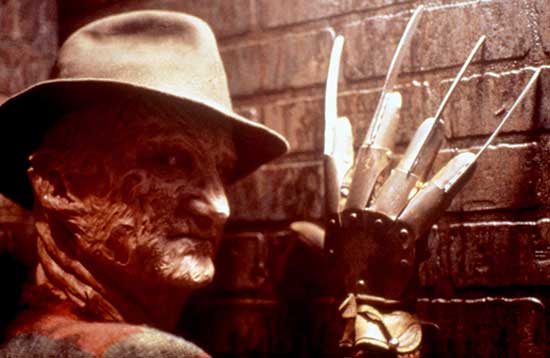
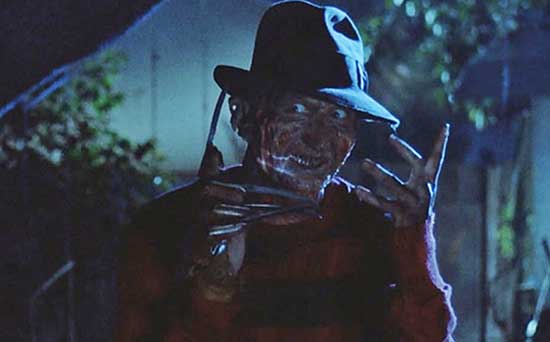
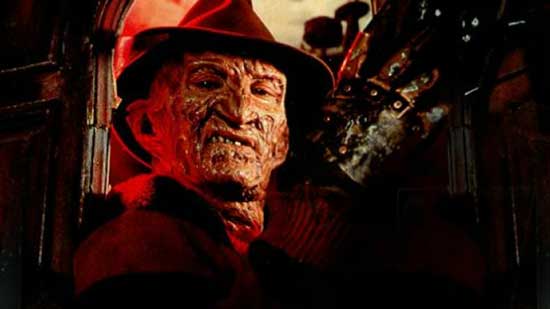
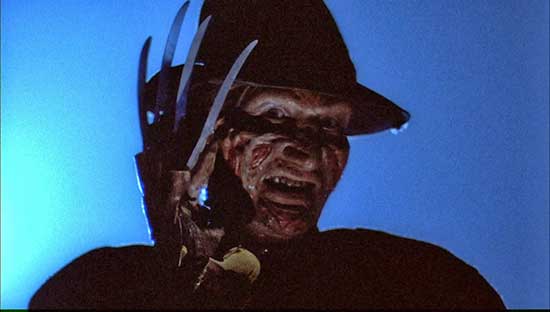
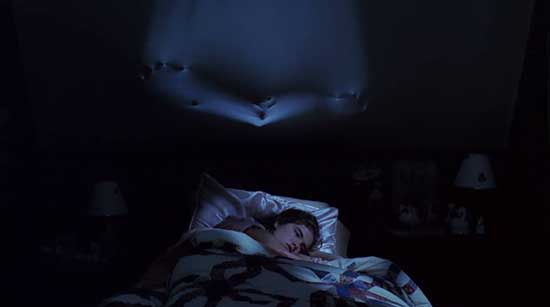
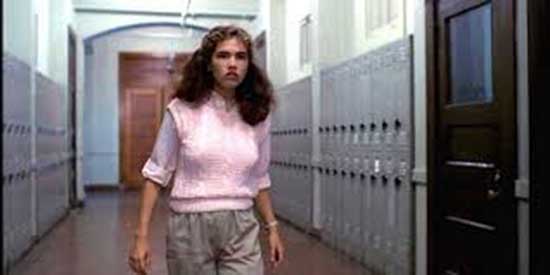
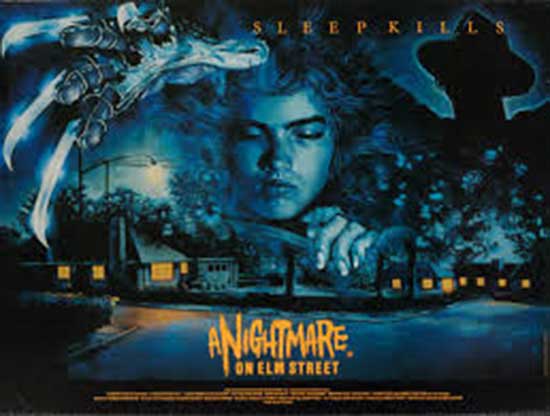
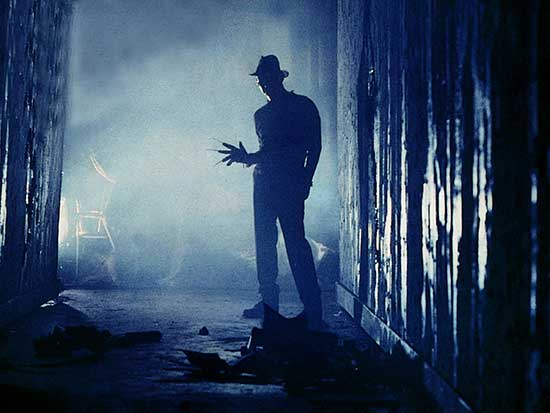
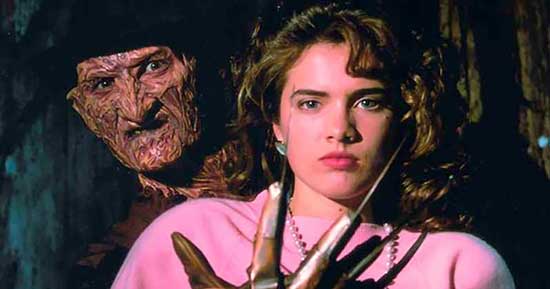
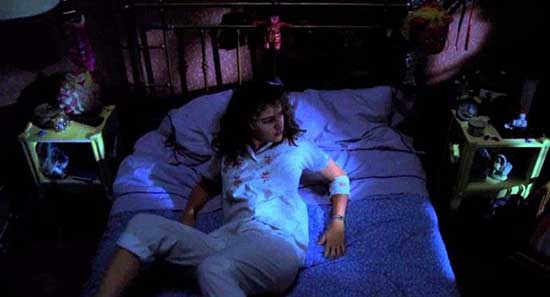
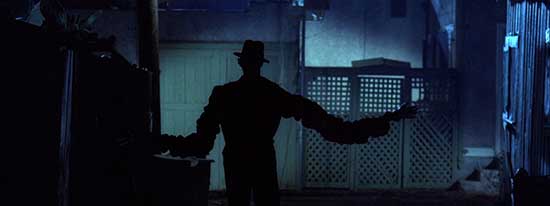
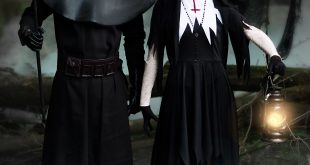
i have watched it several time and each time it affect my brain with lot of terror. your website amazing content impress people